Rhodesian Ridgeback: Breed Facts, Experience and Tips from 9K+ Owners

Ready to meet a dog breed that's truly got it all - brains, brawn, and a distinctive mohawk to boot? Say hello to the Rhodesian Ridgeback, the African lion hunter turned family companion who's sure to steal your heart (and probably your spot on the couch!).
At Sniffspot, we've gathered insights from over 30 dedicated Ridgeback owners who've shared their real-world experiences with these magnificent hounds. Whether you're considering adding a Ridgeback to your family or already share your home with one of these dignified dogs, you're in for a treat as we unleash everything you need to know about living with this remarkable breed.
As Sniffspot user Janet puts it: "They're thinking dogs. They think first, then decide how to react." And boy, do they have a lot of thoughts to share!
 Source: Sniffspot Community Breed Survey 2024
Source: Sniffspot Community Breed Survey 2024
Rhodesian Ridgeback Quick Characteristics
- Breed Type: Hound
- Size: Large
- Life Expectancy: 10-12 years
- Healthy Weight Range: 70-85 lbs (females), 85-90 lbs (males)
- Height Range: 24-26 inches (females), 25-27 inches (males)
- Temperament: Alert, Curious, Dignified
- Coat Type: Short, Smooth with a distinctive ridge
- Color: Light wheaten to red wheaten
About the Rhodesian Ridgeback
Based on our survey of Sniffspot community users, Rhodesian Ridgebacks are a fascinating blend of athleticism and affection. These dogs are known for being friendly but initially reserved with strangers, making them excellent family guardians without being overly aggressive. A whopping 86.67% of owners report that positive reinforcement is the key to training these intelligent hounds.
When it comes to living arrangements, 90% of our surveyed owners emphasize that a large house with a fenced yard is ideal for these energetic pups. Additionally, 40% suggest that a rural or suburban area with open spaces works best - after all, these former lion hunters need room to stretch those long legs!
History and Origin of the Rhodesian Ridgeback
Talk about a dog with a fascinating backstory! The Rhodesian Ridgeback originated in southern Africa, where they earned their stripes (or should we say ridge?) as fearless lion hunters. These remarkable dogs were developed by crossing native African dogs, known for their distinctive ridge of backward-growing hair, with various European breeds brought by Dutch colonists.
Originally known as the African Lion Hound, these brave pups weren't actually meant to take down lions (let's leave that to the professionals!). Instead, they were expert trackers who would keep the big cats at bay until hunters arrived. Pretty impressive party trick, if you ask us!
Today's Ridgebacks have traded in their lion-hunting credentials for a more domestic lifestyle, but they haven't lost an ounce of their dignity, intelligence, or athletic ability. As one of our survey respondents, CJ, notes: "Having only had this breed for 40 years, done foster care for Ridgies, and wouldn't have any other dog given a choice!"
 Source: Jean van Wyk on Unsplash
Source: Jean van Wyk on Unsplash
Rhodesian Ridgeback Traits and Characteristics
- Temperament: Alert, Curious, Dignified
- Energy Level: Moderate to High
- Trainability: Highly trainable with consistent positive reinforcement
- Grooming needs: Low maintenance
- Good with Kids: Friendly but initially reserved
- Good with Other Dogs: Very friendly and social
- Good with Other Pets: Neutral, neither particularly friendly nor unfriendly
What to Expect as a Rhodesian Ridgeback Owner
Ready to share your life with a Rhodesian Ridgeback? Here's the inside scoop from our pack of experienced owners on what daily life looks like with these magnificent hounds.
 Source: Sniffspot Community Breed Survey 2024
Source: Sniffspot Community Breed Survey 2024
Grooming Needs
Good news for those who'd rather spend time playing than grooming - Rhodesian Ridgebacks are relatively low-maintenance in the grooming department! According to our survey, 83.33% of owners report that these dogs require minimal grooming, such as occasional brushing and baths. Their short, smooth coat is naturally clean and doesn't tend to hold onto odors.
However, don't skip those regular grooming sessions entirely - they're perfect opportunities for bonding and checking for any skin issues, which can be common in the breed.
Exercise Needs
Hope you've got your running shoes ready! 56.67% of Ridgeback owners report that their dogs need moderate exercise (1-2 hours daily). These athletic pups thrive with regular physical activity, and our survey shows their favorite activities include:
- Running/jogging (60%)
- Hiking (56.67%)
- Tug-of-war (56.67%)
As Monica, one of our surveyed owners, explains: "They need a lot of companionship and time. They can have lots of energy and their prey drive is high. They were bred for tracking lions. It is in their DNA."
Diet and Nutrition
When it comes to keeping your Ridgeback well-fed and healthy, our survey shows that 73.33% of owners opt for commercial dry kibble. These athletic dogs need high-quality nutrition to maintain their muscular build and energy levels. As JT advises: "Only feed high quality food and many of this breed do not tolerate chicken based food."
Health Concerns
While generally healthy, our survey revealed some common health issues to watch for. Let's dive deeper into these conditions so you can better understand what to look out for and how to help your Ridgeback stay healthy.
Skin Conditions (36.67% of surveyed owners reported)
Rhodesian Ridgebacks can be prone to various skin issues, with more than a third of our surveyed owners reporting skin-related concerns. The most common include:
- Allergies: These can be environmental (like pollen or grass) or food-related. Signs include excessive scratching, red or irritated skin, and hot spots. Many owners find success with specialized diets and working closely with their vet to identify triggers.
- Dermatitis: This skin inflammation can be caused by various factors, including allergies, parasites, or bacterial infections. Watch for redness, itching, or changes in skin texture, especially in skin folds or under the ridge.
- Hot Spots: These painful, red, and often wet patches can develop quickly, especially in hot or humid weather. Keeping your Ridgeback's coat clean and dry can help prevent them.
Prevention tips include regular grooming to check for skin issues, using pet-specific shampoos, and maintaining a healthy diet rich in omega fatty acids.
Joint Problems (33.33% of surveyed owners reported)
As large, athletic dogs, Ridgebacks can experience various joint issues. Our survey showed that one-third of owners dealt with joint-related concerns, including:
- Hip Dysplasia: This inherited condition occurs when the hip joint doesn't fit together properly.
- Arthritis: Often developing as dogs age or as a secondary issue to other joint problems.
- Elbow Dysplasia: Similar to hip dysplasia but affecting the front legs, this condition can cause lameness and pain.
Ear Infections (30% of surveyed owners reported)
While Ridgebacks don't have the floppy ears that often predispose some breeds to ear infections, 30% of our surveyed owners still reported dealing with ear issues. Here's what you need to know:
- Common Causes: Moisture trapped in ears after swimming or bathing, allergies leading to inflammation, yeast or bacteria, or foreign objects
Remember: While these health issues are common in the breed, not every Ridgeback will experience them. Working with reputable breeders who conduct health testing and maintain regular veterinary check-ups can help catch and address problems early. As one of our surveyed owners notes: "Regular vet visits and staying on top of preventive care has helped keep our Ridgeback healthy and active well into their senior years."
How Friendly Are Rhodesian Ridgebacks?
When it comes to socialization, Ridgebacks are like that friend who takes a minute to warm up but then becomes your biggest supporter. Our survey shows they're:
 Source: Sniffspot Community Dog Breed Survey 2024
Source: Sniffspot Community Dog Breed Survey 2024
- Friendly but initially reserved with strangers
- Friendly but initially reserved with children
- Very friendly and social with other dogs
- Neutral with other pets
How to Train Your Rhodesian Ridgeback
Training a Ridgeback is like negotiating with a very smart, very athletic lawyer - they'll hear your arguments, but they'll definitely want to present their own case! Our survey shows the most effective training methods are:
- Positive reinforcement (86.67%)
- Consistent daily training routines (50%)
- Socialization with other dogs and people (40%)
What Do Owners Love About Rhodesian Ridgebacks?
Our Ridgeback owners couldn't help but gush about their beloved companions. Here are some heartfelt testimonials:
- "They have great endurance and stamina but will also curl up with you for hours. They are always ready to go and make me work for it when it comes to training." (Ashley)
- "Very calm and laid back if he gets a little exercise every day." (Ds)
- "They're thinking dogs. They think first, then decide how to react." (Janet)
- "How much he loves his owners and how friendly he is." (Mackenzie H)
- "Perfect energy for our lifestyle (nap while we're working, otherwise active), loving, sensitive." (CJ)
What Are the Biggest Challenges for Rhodesian Ridgeback Owners?
Of course, no dog is perfect (but don't tell them that!). Here are some challenges our owners mentioned:
- "As puppies they are often bitey monsters. As a hunting breed bred to hunt large game, you have to work with their prey drive." (Ashley)
- "Their strong personalities can be tough for first time dog owners." (Emma)
- "Training, can be stubborn and easily distracted. Strong Prey Drive. Not food motivated." (Monica)
- "They're bred to work independently and that could be a challenge for those first time owners experiencing a 'compliant dog'. They simply don't do as they're told to 'please the owner' unless you build a strong partnership." (Alice)
Is a Rhodesian Ridgeback Right for a First-Time Dog Owner?
 Source: Sniffspot Dog Breed Survey 2024
Source: Sniffspot Dog Breed Survey 2024
According to our survey, 63.33% of Ridgeback owners wouldn't recommend this breed for first-time dog owners. While these dogs are loving and loyal, their independent nature and training needs can be challenging for novice dog owners.
Advice for Rhodesian Ridgeback Owners
Looking to join the Ridgeback club? Here's some golden advice from our experienced owners:
- "Be consistent - if you give them an inch, they'll walk all over you. Patience is key. Remember that everything they do is a product of your teaching - if they're not doing what you'd like, it's your responsibility to teach them." (Emma)
- "Socialize and train early because they are very strong and stubborn." (Ds)
- "Consider working alongside a trainer who has experience with the breed and uses evidence-based ethical training methods." (Alice)
- "Must be willing to spend a large amount of time consistently exercising dog." (Joshua)
Frequently Asked Questions about the Rhodesian Ridgeback
What is the average lifespan of a Rhodesian Ridgeback?
Rhodesian Ridgebacks typically live between 10-12 years.
What is the average size of a Rhodesian Ridgeback?
Males typically stand 25-27 inches tall and weigh 85-90 pounds, while females are 24-26 inches tall and weigh 70-85 pounds.
How much grooming does a Rhodesian Ridgeback need?
Rhodesian Ridgebacks are low-maintenance when it comes to grooming. Most owners report needing only occasional brushing and bathing to keep their coat in good condition.
How much exercise does a Rhodesian Ridgeback need?
These athletic dogs need moderate exercise, typically 1-2 hours daily of activities like running, hiking, or playing.
How friendly are Rhodesian Ridgebacks with children?
While initially reserved, Rhodesian Ridgebacks are generally friendly with children once they warm up. Early socialization is key.
How well do Rhodesian Ridgebacks get along with other dogs?
According to our survey, they're very friendly and social with other dogs, making them great playmates at the dog park.
Resources for Rhodesian Ridgeback Owners
Ready to learn more about these remarkable dogs? Here are some helpful resources:
- Rhodesian Ridgeback Club of the United States
- Texas Rhodesian Ridgeback Rescue
- High-Energy Dog Trainers
- Most Popular Rhodesian Ridgeback Names
Ready to Ridge and Roll? Final Thoughts on Rhodesian Ridgebacks
There you have it, folks - everything you need to know about these magnificent African lions hunters turned family companions! From their distinctive ridge to their dignified demeanor, Rhodesian Ridgebacks truly are one-of-a-kind dogs who bring both challenges and immense joy to their families.
As our survey of 30+ dedicated Ridgeback owners shows, these dogs aren't just your average pups. They're athletes, thinkers, and loyal family members all rolled into one handsome package. While they might not be hunting lions anymore (unless you count that suspicious-looking garden gnome), they still bring their historical courage and dignity to everything they do - whether it's accompanying you on a trail run or carefully considering whether your "stay" command aligns with their current priorities!
Remember, Ridgebacks aren't for everyone - and that's okay! They need owners who can match their intelligence with patience, their strength with consistency, and their independence with understanding. But for those ready to take on the challenge? Well, as CJ puts it: "Wouldn't have any other dog given a choice!"
Whether you're ready to welcome a Ridgeback into your life or just enjoying learning about these remarkable dogs, one thing's for sure - there's no other breed quite like them. After all, how many other dogs can claim they used to keep lions in check and now excel at keeping their humans in shape?
Looking for a safe space to let your Ridgeback run and play? Check out Sniffspot's private dog parks in your area, perfect for these athletic pups who need room to stretch those long legs!
Most recent articles

What Is a Reactive Dog? A Complete Guide
Is your dog overly excited or fearful around other dogs? Do they bark, lunge, or whine? You might have a reactive dog. Many dog owners face this challenge. Understanding what a reactive dog is is the first step to helping them. This guide explores the common causes of dog reactivity, explains what makes a dog reactive, and offers practical tips and resources. Let's work together to build a stronger bond with your dog and enjoy stress-free walks.

Positive Dog Body Language: Signs of a Happy Pup
* All Sniffspot articles are reviewed by certified trainers for quality, please see bottom of article for details *

Best Dog Parks Near Me in Austin (Public & Private)
Looking for the perfect dog park near me in Austin? This guide has you covered. We'll explore Austin's best dog parks, from Zilker Park's popular off-leash area to smaller, quieter options. Plus, we'll introduce you to Sniffspot, where you can rent private dog parks near me. Let's find the perfect spot for your furry friend!

Shih Tzu Ownership: Ultimate Guide for New Owners
So, you're thinking about adding a Shih Tzu to your family? Excellent choice! These pups are known for their affectionate personalities and gorgeous coats. But before you bring one home, let's cover some essential shih tzu advice for new owners. This guide, created with insights from experienced Shih Tzu owners, will help you prepare. We'll explore everything from whether Shih Tzus are loyal and affectionate, to if they can be service dogs. Plus, we'll share practical tips on training, grooming, and health. Ready to become a Shih Tzu expert? Let's go!

Dog Parks Near Me: Chicago Guide (Public & Private)
Finding the perfect dog park near me in Chicago can feel overwhelming. But don't worry! This guide explores Chicago's best dog-friendly spots, from popular public dog parks near me to private Sniffspot Chicago locations. We'll cover everything you need for a safe and fun outing, including a handy checklist and tips on dog park etiquette. Whether you want a quick walk, a chance for your pup to socialize, or the best off-leash dog park experience, we've got the perfect spot for you and your furry friend.
Related articles
Top dog guides per area
Dog training guides

Dog Food Aggression: Why You Shouldn't Punish It
Does your dog ever growl when you walk by their food dish? Maybe they get possessive of treats, carrying them far away and giving you side-eye when you start to approach — or snarling at your other pets or children if they get too close.

Scent Training for Dogs: A Beginner's Guide
As almost every dog owner is aware, the nose of a dog is an amazing thing. Just as they can pick up sounds we can’t hear, their sense of smell and ability to pick up scents is well beyond ours. In fact, dogs have 40 times the number of olfactory receptors as humans.

Service Dog Training Costs: DIY vs. Pro
More than 80 million Americans rely on their service dogs to help them navigate the world. Task-trained assistance animals perform a huge range of life-changing—in many cases, life-saving—services: These dogs act as eyes for visually impaired handlers, provide mobility support, alert to seizures and blood sugar crashes, interrupt anxiety attacks, remind their people to take medications, and so much more.

How to Deal With Puppy Potty Training Regression
You thought those dreaded middle-of-the-night potty breaks were over. You were finally free from cleaning up puppy puddles. Then, suddenly, your furry friend starts having accidents again. It's frustrating, right? This puppy potty training regression is more common than you think. Don't worry; we'll help you get your pup back on track. We'll cover the common causes, offer practical solutions, and give you actionable steps to tackle this challenge together.

Dirty Dog Syndrome: Causes, Solutions, and Prevention
It's a cringe-worthy moment every dog owner dreads: your furry friend chowing down on something truly disgusting. If your dog has a penchant for poop, you're dealing with coprophagia. It's more common than you think, and thankfully, often manageable. This article explores the reasons behind dirty dog syndrome, from instinct to learned behavior. We'll also give you practical tips to help break this unpleasant habit.
Dog enrichment guides

Top 10 Dog Water Parks in the US
Do you have a water-loving dog looking to burn some energy? There are countless dog parks to visit throughout our country — but some of them become far too hot in the midday sun to be safe for your pets to play. That’s why we’ve put together a list of some of the best dog water parks throughout the United States! At these locations, your pup can frolic, splash, and swim to their heart’s content.

Best Toys for Herding Dogs: Keeping Your Pup Happy & Engaged
Herding dogs are amazing, intelligent companions. But that also means they need more than just a simple game of fetch. Finding the right toys for herding dogs is key to keeping them happy and stimulated. This article explores some of the best toys for herding dogs, including options specifically for breeds like Border Collies and Australian Shepherds. We'll help you discover the perfect herding toys for dogs to tap into their natural instincts and keep them entertained for hours.

Ultimate Guide: Dog Toys for Aggressive Chewers
Does your dog destroy every toy you give them? Is your house littered with remnants of fabric and stuffing of all different sizes? Are you tired of investing in “indestructible” toys only for your pup to still dismantle—or worse, get bored of—them in just a few days?

Daily Exercise Calculator: How Much Exercise Does Your Dog Need?
Everyone knows dogs need exercise, but how much is enough? Walks are great, but creating a truly balanced fitness plan means understanding your dog's specific needs. This post helps you develop a daily exercise calculator for your dog, considering breed, age, and lifestyle. We'll cover fun activities, understanding exercise intensity, and recognizing when your pup has had enough. Let's create a plan that keeps your dog happy and healthy!

Complete Guide To Herding With Dogs
* All Sniffspot articles are reviewed by certified trainers for quality, please see bottom of article for details *
Dog reactivity guides

Rottweiler Aggression: Truth vs. Myth
Many dogs have gotten a bad reputation over the years for being "dangerous breeds." Rottweilers are among them. Like pit bulls and other large, blocky-headed types of dogs, these powerful and beautiful animals are often assumed to be aggressive.

What Is a Reactive Dog? A Practical Guide for Owners
Does your dog suddenly transform into a barking, lunging Tasmanian devil on walks? It's stressful for both of you. If this sounds familiar, you might have a reactive dog. Understanding what is a reactive dog is the first step to calmer walks. We'll explore the common triggers and give you actionable strategies to manage and modify this behavior. Let's turn those stressful walks into enjoyable outings.

How to Socialize a Reactive Dog: A Step-by-Step Guide
Does your dog display reactivity to other pets or people? Maybe they’re a new rescue pup and are still settling into your home. Or they were sick growing up, so you missed their critical socialization period. Possibly they’ve had a bad experience after being raised as a normal puppy.

What Is a Reactive Dog? A Comprehensive Guide
Do you have a reactive dog or suspect you may have one? You’re not alone!

Best Online Dog Training for Reactive Dogs: A Practical Guide
Does your dog's reactivity make walks stressful? You're not alone. Many dog owners face similar challenges. This guide offers practical advice and support for managing reactivity, including finding the best online dog training for reactive dogs. We'll connect you with reactive dog support groups, share training tips, and explore resources like the best dog training app for reactive dogs. Let's build a stronger bond with your dog, together.
* All Sniffspot articles are reviewed by certified trainers for quality, please see bottom of article for details *
Sniffspot community guides

The State of Public Dog Parks Across the United States
From 2009 to 2020, there was a 40 percent increase in the development of public dog parks. Designated spots for canine exercise have become commonplace in every major city in North America — many pet owners won’t even consider renting an apartment that doesn’t have its own fenced-in pet area for their canine companions.

How This Family is Affording Their Dream Property Through Renting it Hourly to Dogs
Thousand Oaks, California has been a safe haven for Sniffspot host, Jen, since childhood. Having grown up in busy Santa Barbara, Jen, an introvert from an early age, would seek out solitude and serenity away from tourists attractions and droves of people visiting from elsewhere. “My grandparents own 60 acres about a 30 minute drive from here, and I grew up spending every summer and every holiday visiting them on the ranch,” Jen explained. “In Santa Barbara, we wouldn't go to the beach on the weekend because that's where everybody was, so you'd find places off the beaten path where the tourists weren't. For me, the ranch was just my happy place.”

Host Tips: Ellen K. What Makes Sniffspot Successful for Me
Ellen is the host of Country Pasture Getaway, one of Sniffspot's most popular sniff spots. She has taken the time to write up the lessons she has learned about how to be a great sniff spot host.

How this Oregon Farmer is Making a Business From Renting Her Land to Dogs
Just 20 minutes outside of the busy city of Portland, Oregon, and settled right on the banks of the Columbia River, you’ll find what countless visitors have flocked to the area in search of – mountain views, crisp, clean air, and running water for miles. What you might not expect to find, however, is a hidden oasis designed just for dogs and their people, owned and operated by a farming couple and enjoyed by visitors on two legs, and four.

Host Tips: Fran T. Providing Great Guest Service at our Spot
Fran is the host of Ranch Setting, one of Sniffspot's most popular spots. She has taken the time to write up the lessons she has learned about how to be a great Sniffspot host.
Top dog trainers in the US
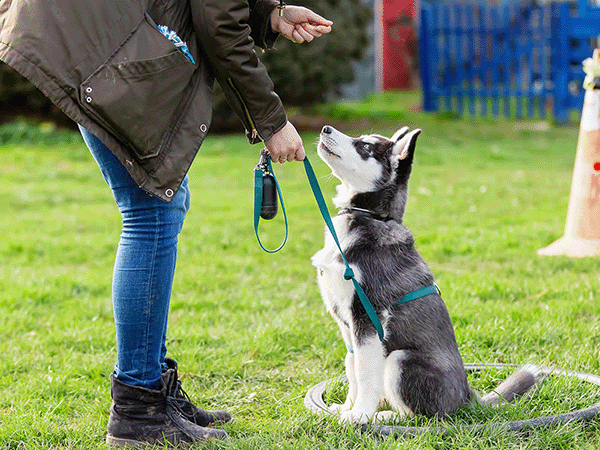
The Best Dog Trainers in the United States of 2025
This is a list of the top dog trainers in the United States, based on votes from the Sniffspot community and the general public.
The Best Dog Trainers in Seattle, WA of 2025
This is a list of the top dog trainers in Seattle, WA, based on votes from the Sniffspot community and the general public.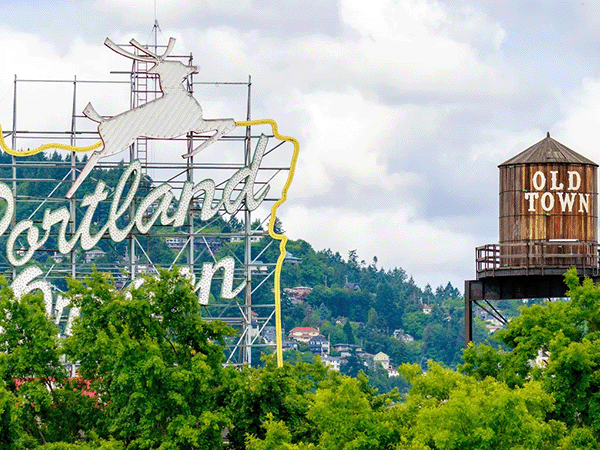
The Best Dog Trainers in Portland, OR of 2025
This is a list of the top dog trainers in Portland, OR, based on votes from the Sniffspot community and the general public.
The Best Dog Trainers in Los Angeles, CA of 2025
This is a list of the top dog trainers in Los Angeles, CA, based on votes from the Sniffspot community and the general public.
The Best Dog Trainers in New York, NY of 2025
This is a list of the top dog trainers in New York, NY, based on votes from the Sniffspot community and the general public.
City dog parks guides

Top 10 Indoor Dog Parks: A US Guide
Looking for a space to play with your dog no matter what the weather’s like outside? Look no further than our list of the best indoor dog parks in the United States! These climate-controlled spaces are growing in popularity as pet ownership increases throughout the country. As a bonus, many of them also offer dog training, boarding, grooming, or daycare services on the premises.

15 Best Dog Parks in the US: Public & Private
Searching for the best off-leash dog parks near you in the United States? Whether you're looking for public dog parks with open spaces or private, fully-fenced areas, this comprehensive guide has you covered. Discover top-rated parks across the country, plus essential tips on what to bring and what to expect for your next adventure.

Dog Parks Near Me: Las Vegas Edition
Looking for the perfect dog park near me in Las Vegas? You're in luck! This guide explores all the best options for your pup, from public dog parks to private dog parks near me on Sniffspot. We'll help you find the ideal spot for playtime, socializing, and fresh air. Plus, we'll cover essential etiquette and safety tips to ensure a happy visit for everyone. Get ready for some tail-wagging fun!

Best Sniffspot Locations: Private Dog Parks Near You
Looking for the perfect dog park? Whether you need a wide-open public space or a private, fenced-in spot, this guide will help you find the best dog parks across the US. We'll cover top-rated public parks, the perks of private dog parks, and even explore Sniffspot locations – giving your pup a safe and fun place to play. Ready to find your dog's new favorite spot? Let's go!

Sniffspot: Portland's Best Private Dog Parks
Ready to discover Portland's best dog parks? Whether you're looking for a public park or the unique experience of a private Sniffspot, this guide has you covered. We'll help you find the perfect spot for your pup, with tips on what to bring, how to prepare, and even understanding dog body language. Plus, we'll explore some top Portland dog parks, including public and Sniffspot options, so you can plan your next dog-friendly adventure in the City of Roses.
Dogs breeds

German Shepherd Dog: Breed Facts, Experience and Tips from 9K+ Owners
Discover the German Shepherd Dog, a breed celebrated for its intelligence, loyalty, and versatility. Known for its impressive size and smooth, graceful movements, German Shepherds excel in various roles, including as guide, therapy, bomb detection, and police dogs, while being a devoted family companion.

Labrador Retriever: Breed Facts, Experience and Tips from 9K+ Owners
Discover the Labrador Retriever, a breed celebrated for its playful nature, affectionate temperament, and trainability. Labradors are known for their friendly demeanor and adaptability, making them perfect family companions and versatile working dogs. As one of the most popular types of retrievers, Labs are ideal companions for various lifestyles and are recognized by the American Kennel Club (AKC) as an excellent breed for families.

Golden Retriever: Breed Facts, Experience and Tips from 9K+ Owners
Discover the Golden Retriever, a popular breed celebrated for its affectionate, playful, and trainable nature. Considered a large dog, Golden Retrievers were originally bred in Scotland for hunting and retrieving game beginning in the 1860s. Today, they're recognized by the Kennel Club and the American Kennel Club (AKC) as one of the most beloved companion dog breeds.

American Staffordshire Terrier: Your Complete Guide
Think American Staffordshire Terriers are tough? Think again. While their muscular build might intimidate some, these dogs are known for their playful and loyal personalities. This guide draws on the experience of nearly 10,000 AmStaff owners to reveal the truth about this often misunderstood breed. Want to learn more about caring for an American Staffordshire Terrier? You're in the right place.

Australian Shepherd Facts: Breed Info & Care Guide
Discover the Australian Shepherd, an AKC breed celebrated for its trainable, playful, and affectionate nature. Despite its name, the Australian Shepherd is actually a native breed to the United States, originally developed to breed on farms and ranches. Considered a medium dog, Australian Shepherds were bred for herding beginning in the 1950s. As one of the high-energy breeds, Aussies are known for their boundless energy and need for regular exercise, including aerobic exercise.
Top dog names in the US
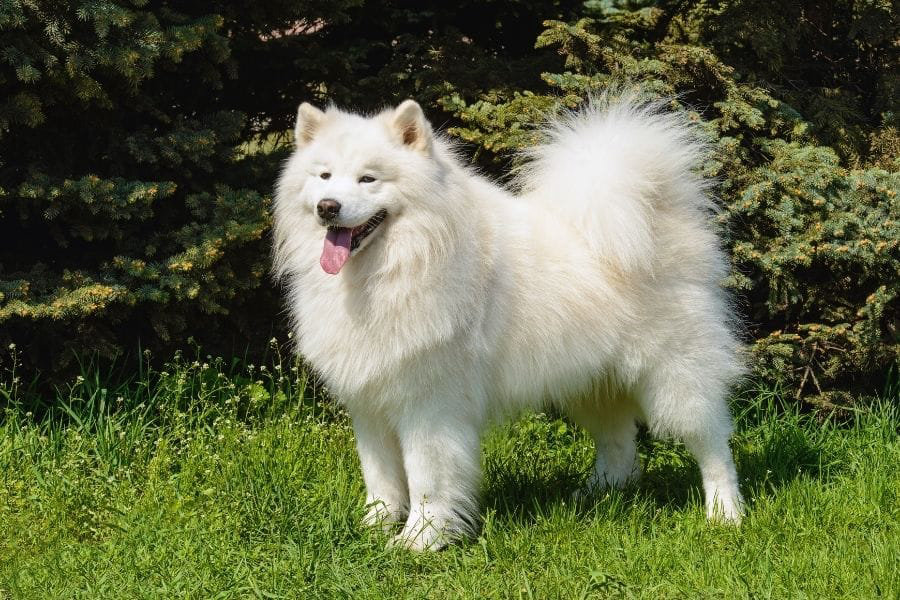
Top 1,000 Most Popular Dog Names
Looking for the perfect dog name for your new pup? We have created filterable lists of dog names from our database of hundreds of thousands of Sniffspot users. You can filter by gender, breed and state to find the most cute, unique and creative dog names.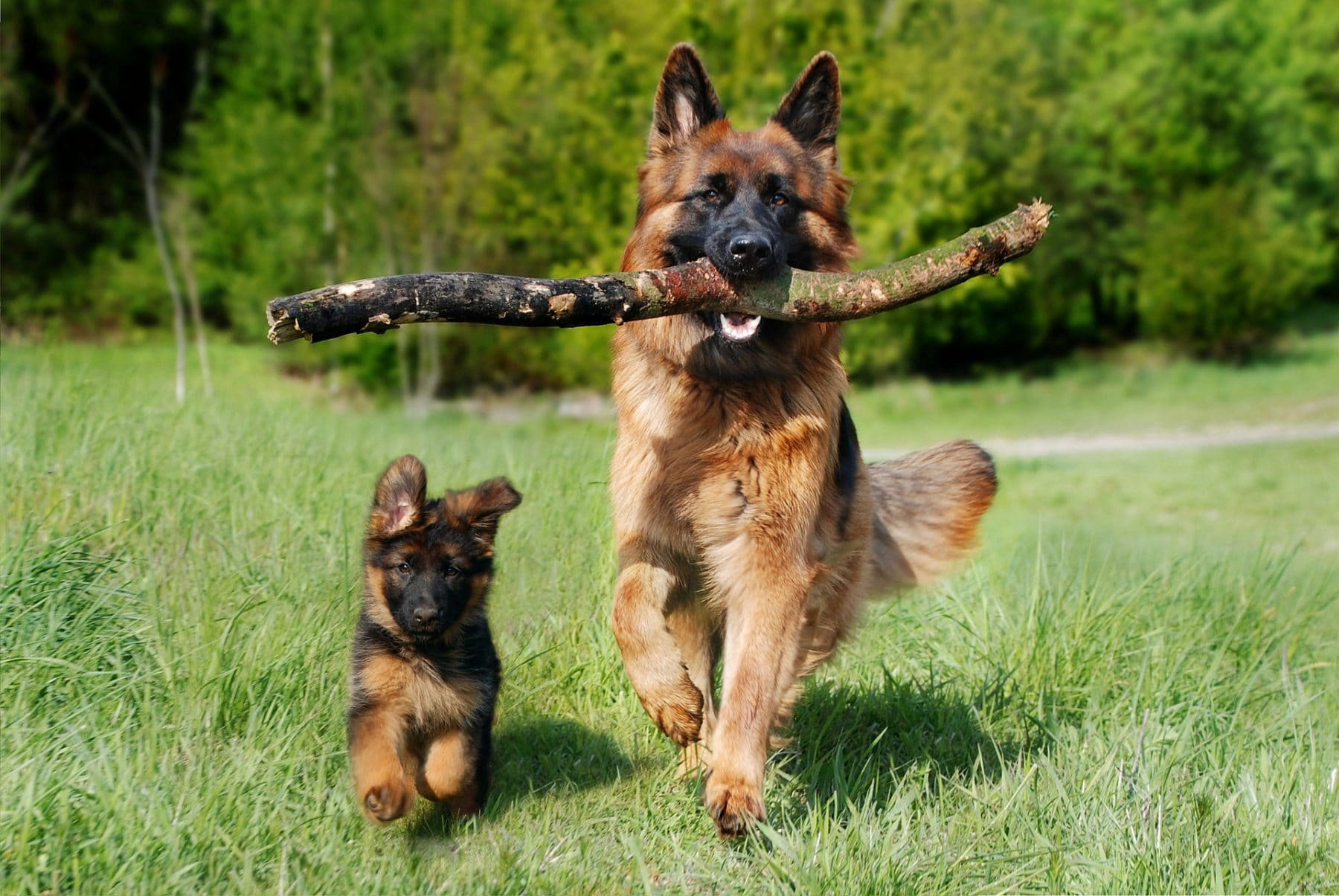
Most Popular Male Dog Names
Looking for the perfect dog name for your new male pup? We have created filterable lists of male dog names from our database of hundreds of thousands of Sniffspot users. You can filter by gender, breed and state to find the most cute, unique and creative male dog names.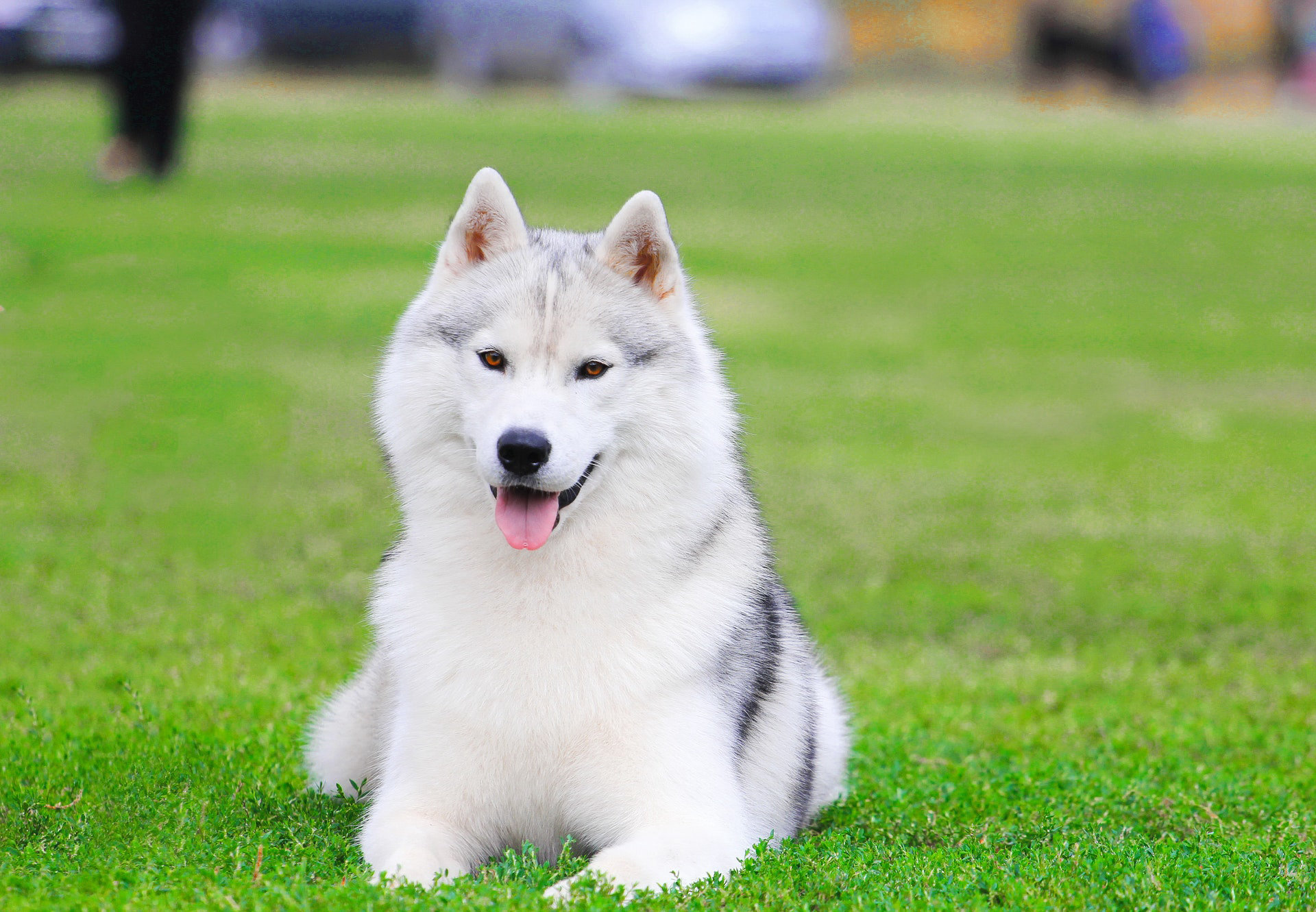
Most Popular Female Dog Names
Looking for the perfect dog name for your new female pup? We have created filterable lists of female dog names from our database of hundreds of thousands of Sniffspot users. You can filter by gender, breed and state to find the most cute, unique and creative female dog names.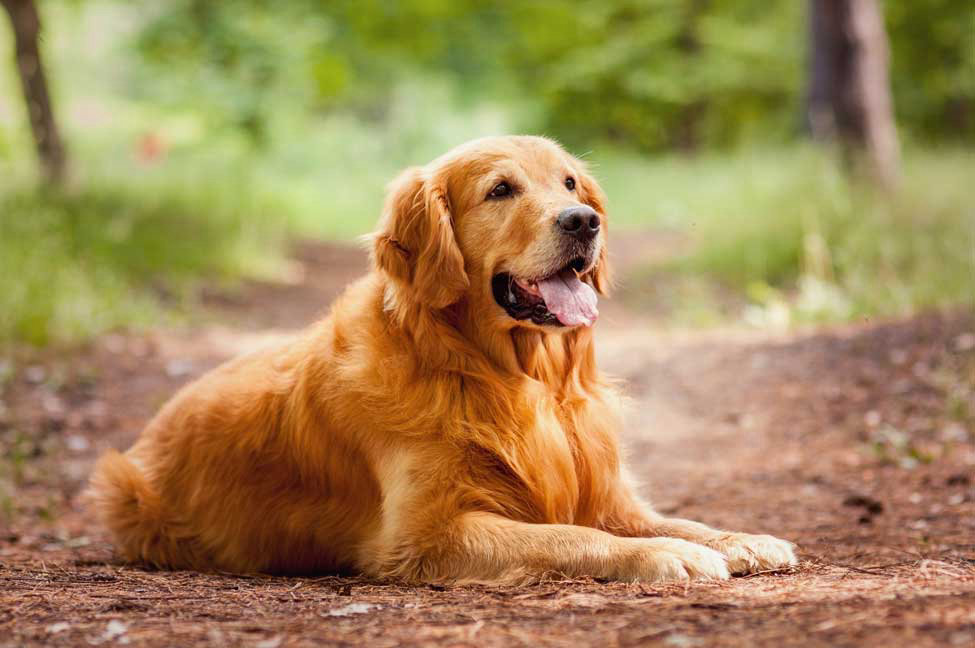
Most Popular Golden Retriever Names
Welcome to our comprehensive list of Golden Retriever dog names, curated from our vast database of Sniffspot users. Filter through hundreds of thousands of options by gender, breed, and state to discover the most adorable, original, and imaginative names for your beloved Golden Retriever.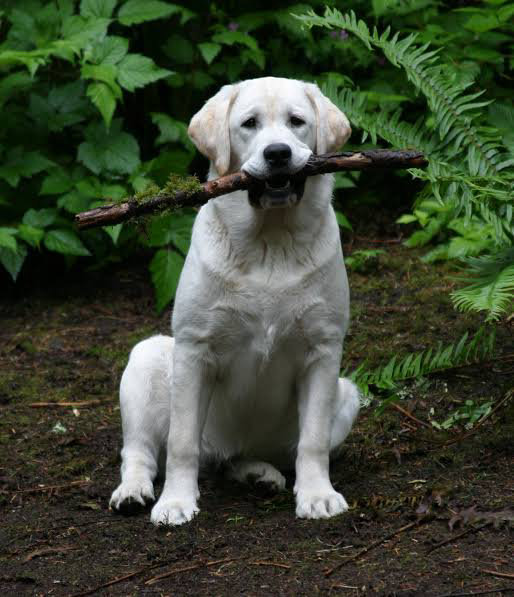
Most Popular Labrador Retriever Names
Welcome to our Labrador Retriever dog names page! Here you can browse through filterable lists of names for your beloved furry friend, ranging from cute and classic to unique and creative options. Our database of hundreds of thousands of Sniffspot users ensures you'll find the perfect name for your Labrador Retriever, whether you're seeking a name for a male or female, based on breed or state.
Top dog rescues in the US

The Best Washington Dog Rescues & Shelters in 2025
This list showcases the top dog rescues & shelters in Washington. These remarkable organizations have been recognized for their unwavering dedication to the well-being of countless dogs.
The Best Oregon Dog Rescues & Shelters in 2025
This list showcases the top dog rescues & shelters in Oregon. These remarkable organizations have been recognized for their unwavering dedication to the well-being of countless dogs.
The Best California Dog Rescues & Shelters in 2025
This list showcases the top dog rescues & shelters in California. These remarkable organizations have been recognized for their unwavering dedication to the well-being of countless dogs.
The Best Florida Dog Rescues & Shelters in 2025
This list showcases the top dog rescues & shelters in Florida. These remarkable organizations have been recognized for their unwavering dedication to the well-being of countless dogs.
The Best New York Dog Rescues & Shelters in 2025
This list showcases the top dog rescues & shelters in New York. These remarkable organizations have been recognized for their unwavering dedication to the well-being of countless dogs.






















